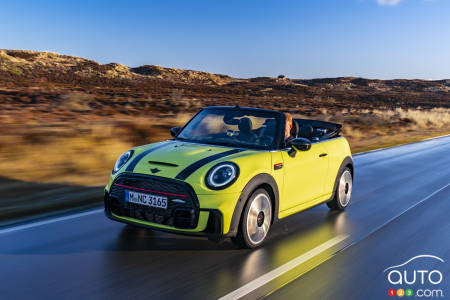The microchip crisis continues to claim victims, the most recent being certain models belonging to the Mini brand.
We've already seen other manufacturers having to adjust and assemble and deliver certain of their models without some features, with the promise of installing the semiconductors on board afterwards. We're currently seeing this with the GMC Terrain, some versions of which are being delivered without heated seats. In a case like that, the fix-it-later solution is obviously possible.
However, what’s happening with Mini is more difficult to reverse. Supply problems have forced Mini to stop production of models equipped with a manual transmission.
The context for Mini is that the brand is currently working on the next generations of several models. It has decided that the final laps around the track for its current-generation models will be completed with manual gearboxes in the offerings. The company stated that it wants to ensure “production stability”, as reported by the Autocar site.
Not surprisingly, this is making some worry that the decision to drop stick shifts will become permanent, though it's hard to imagine a company whose bread and butter is delivering driving pleasure forevermore selling models without a manual transmission.
“Current circumstances, including the war in Ukraine and semiconductor shortages, are causing supply chain restrictions across the global automotive industry. In order to secure maximum production output to meet increasing customer demand, our product offer needs to be simplified. This solution is the most effective way to ensure production stability so that we can continue to supply all our customers with new Minis.”
- Mini statement
Browse cars for sale available near you

That doesn’t actually answer the question as to whether the next generation of Minis will feature manual transmissions. It might well be that Mini itself hasn’t decided on that definitively, and much may ride on how bad the chip shortage is by the time the models are ready.
The first two new Mini models are expected to debut before the end of the year and go on sale in the first quarter of the following year.
A new fully electric Mini is also planned, most likely in two versions. The entry-level model is set to be equipped with a 40-kWh battery offering a range of about 300 km; a more powerful variant with a 50-kWh battery is also planned, with an expected range of 402 km.





